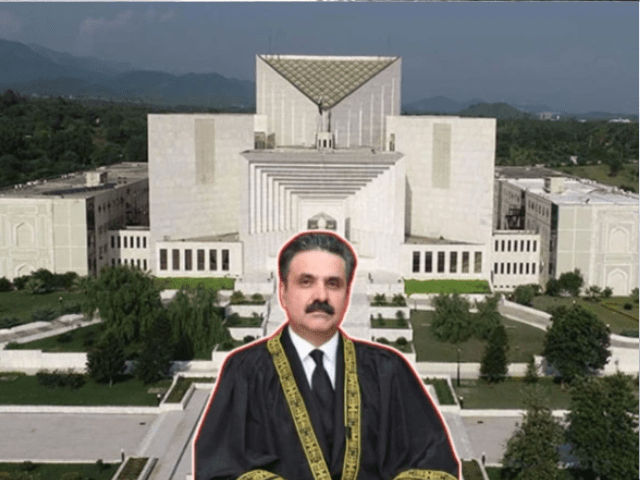One of the significant procedural changes proposed was the assignment of cases to two- and three-member benches, both for criminal and civil matters, which is expected to facilitate quicker decision-making

By our correspondent
ISLAMABAD: In a critical gathering aimed at addressing the growing backlog of cases in the Supreme Court, Chief Justice of Pakistan Yahya Afridi led a full court meeting on Monday that brought together all permanent judges, with Justice Mansoor Ali Shah participating via video link. The urgency of this meeting stemmed from the alarming statistic presented by the Registrar of the Supreme Court, Jazeela Aslam, who reported that the total number of outstanding cases has reached a staggering 59,191.
This figure highlights the pressing need for effective management and resolution strategies within the judicial system. Chief Justice Afridi emphasized his dedication to tackling this backlog, signaling a proactive approach to one of the judiciary’s most pressing challenges. In line with this commitment, Justice Mansoor Ali Shah proposed a comprehensive six-month plan designed to systematically reduce the number of pending cases. During the meeting, Justice Shah shared details of a case management system he had developed, which includes a phased approach broken down into an initial one-month plan, a more extensive three-month plan, and the aforementioned six-month plan.
This structured strategy aims to streamline the case resolution process and improve overall efficiency within the court. The judges engaged in a constructive dialogue during the meeting, sharing their insights and recommendations for expediting case resolutions. One of the significant procedural changes proposed was the assignment of cases to two- and three-member benches, both for criminal and civil matters, which is expected to facilitate quicker decision-making. This change underscores a shift towards more collaborative approaches within the court, leveraging the expertise of multiple judges to enhance the quality and speed of judicial outcomes.
Chief Justice Afridi expressed his appreciation for the judges’ active participation and commitment to addressing the backlog. Their collective insights reflect a shared recognition of the judiciary’s role in maintaining the rule of law and ensuring access to justice for all citizens. The meeting concluded with plans for follow-up, with the next full court meeting scheduled for December 2, marking a critical point for evaluating the implementation of the proposed strategies and their effectiveness in alleviating the backlog.



